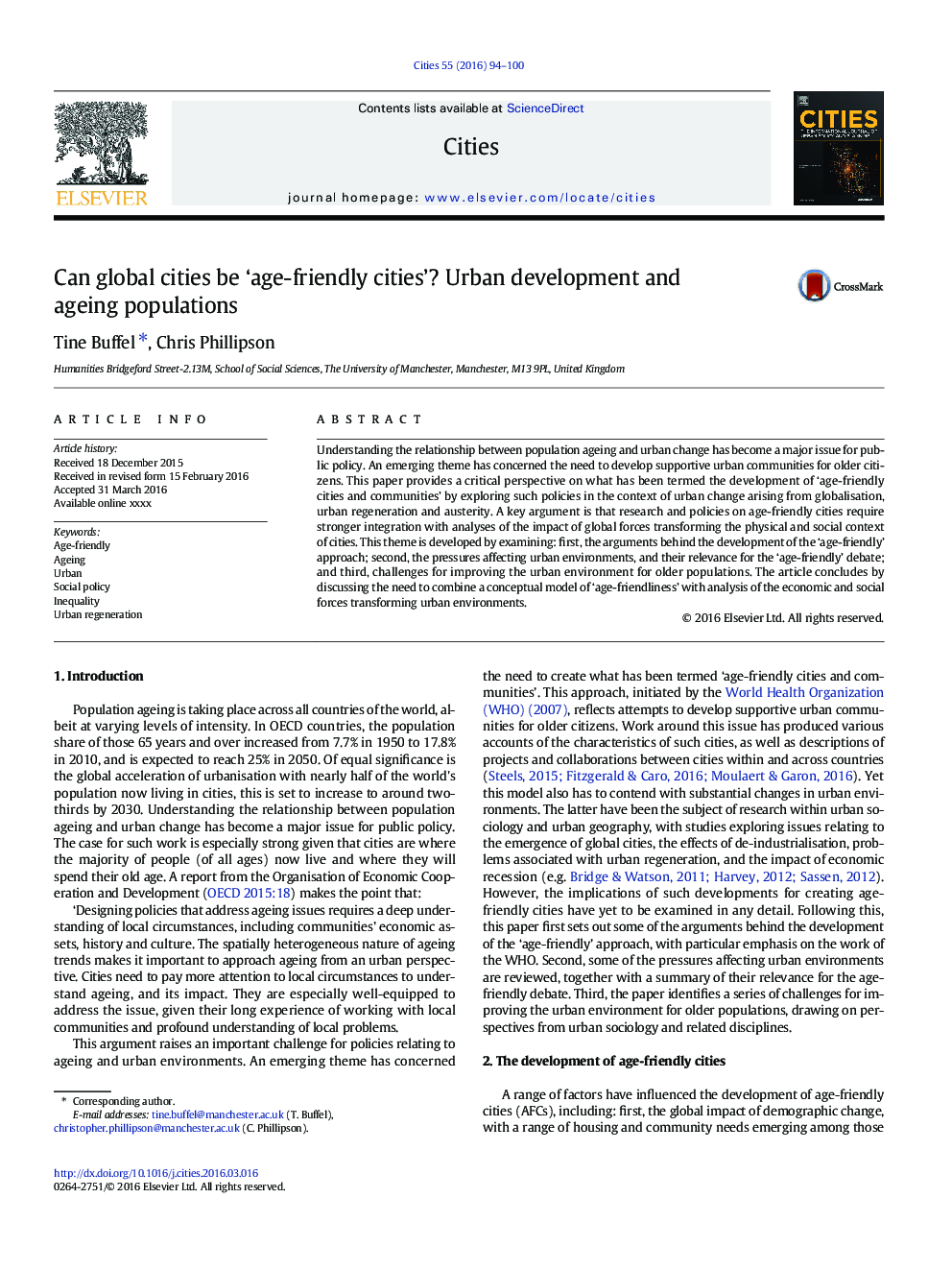| Article ID | Journal | Published Year | Pages | File Type |
|---|---|---|---|---|
| 7418023 | Cities | 2016 | 7 Pages |
Abstract
Understanding the relationship between population ageing and urban change has become a major issue for public policy. An emerging theme has concerned the need to develop supportive urban communities for older citizens. This paper provides a critical perspective on what has been termed the development of 'age-friendly cities and communities' by exploring such policies in the context of urban change arising from globalisation, urban regeneration and austerity. A key argument is that research and policies on age-friendly cities require stronger integration with analyses of the impact of global forces transforming the physical and social context of cities. This theme is developed by examining: first, the arguments behind the development of the 'age-friendly' approach; second, the pressures affecting urban environments, and their relevance for the 'age-friendly' debate; and third, challenges for improving the urban environment for older populations. The article concludes by discussing the need to combine a conceptual model of 'age-friendliness' with analysis of the economic and social forces transforming urban environments.
Related Topics
Social Sciences and Humanities
Business, Management and Accounting
Tourism, Leisure and Hospitality Management
Authors
Tine Buffel, Chris Phillipson,
